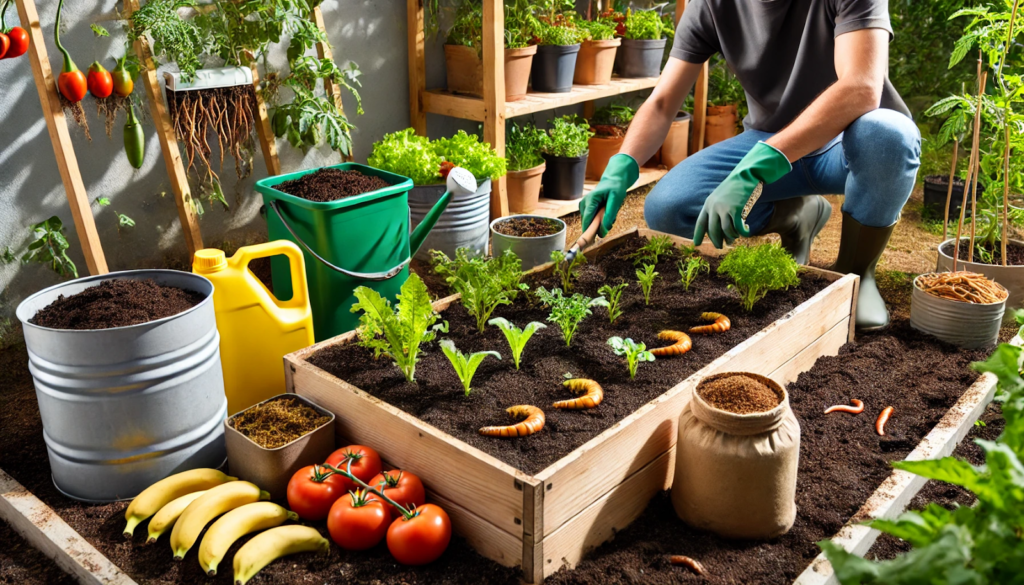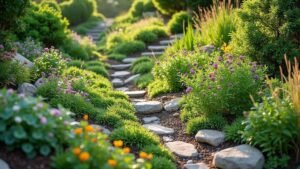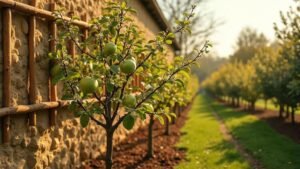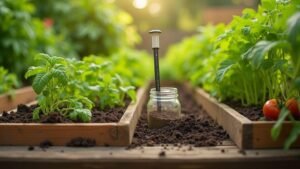Feeding your garden doesn’t require synthetic chemicals. In fact, the most effective way to grow healthy, productive plants is to nourish your soil with natural, organic fertilizers and amendments. These options improve soil structure, enhance microbial life, and release nutrients slowly over time.
Here’s a practical guide to the best organic fertilizers and how to use them in your home garden.
1. Compost
Compost is the cornerstone of organic gardening.
Benefits:
- Rich in nutrients and beneficial microbes
- Improves soil texture and water retention
- Reduces kitchen and garden waste
How to Use:
- Mix into garden beds before planting
- Use as a top dressing around plants
- Brew compost tea for foliar feeding
Make your own from fruit scraps, leaves, and grass clippings, or buy from local suppliers.
2. Worm Castings (Vermicompost)
Worm castings are nutrient-dense and promote healthy root systems.
Benefits:
- High in nitrogen, phosphorus, and potassium
- Contains beneficial microbes
- Won’t burn plants
How to Use:
- Mix into seed starting soil
- Add to potting mixes
- Sprinkle around the base of plants
Perfect for container gardens and seedlings.
3. Aged Manure
Animal manure (from herbivores) adds rich organic matter to the soil.
Best Types:
- Cow
- Horse
- Chicken (composted to reduce strength)
Benefits:
- Improves soil fertility
- Boosts microbial activity
- Increases organic content
How to Use:
- Apply in fall to rest before spring planting
- Mix into compost piles
- Avoid fresh manure near edibles—it must be well-aged
4. Fish Emulsion
A fast-acting liquid fertilizer, especially helpful for leafy greens.
Benefits:
- High in nitrogen
- Promotes lush growth
- Easy to apply
How to Use:
- Dilute according to instructions
- Apply every 2–3 weeks during the growing season
- Use as a soil drench or foliar spray
It has a strong smell but excellent results.
5. Seaweed/Kelp Extract
Packed with micronutrients and plant hormones.
Benefits:
- Improves resistance to stress and disease
- Encourages root development
- Safe for all plants
How to Use:
- Use liquid kelp as a foliar spray
- Mix into watering can for root feeding
- Combine with compost tea for a full-spectrum tonic
Especially useful in the early growth stages.
6. Bone Meal
A slow-release source of phosphorus and calcium.
Ideal For:
- Bulb crops (garlic, onions)
- Flowering plants
- Root vegetables
How to Use:
- Mix into soil at planting time
- Apply around established perennials
- Avoid overusing—excess phosphorus can block micronutrients
Check the pH of your soil before applying.
7. Blood Meal
A high-nitrogen amendment made from dried animal blood.
Benefits:
- Encourages leafy growth
- Quickly corrects nitrogen deficiency
- Natural deer deterrent
How to Use:
- Apply sparingly—too much can burn roots
- Mix into soil, not left on the surface
- Follow with watering to activate
Use early in the growing season.
8. Rock Dust (Mineral Amendments)
Adds essential trace minerals that often lack in worn-out soils.
Types:
- Basalt rock dust
- Azomite
- Greensand
Benefits:
- Rebuilds mineral content in depleted soil
- Improves nutrient absorption
- Supports long-term fertility
Mix into the top 6 inches of soil or compost piles.
9. Banana Peel Water
A simple DIY fertilizer rich in potassium and phosphorus.
How to Use:
- Soak banana peels in water for 2–3 days
- Use the liquid to water flowering or fruiting plants
- Bury chopped peels near root zones
Great for tomatoes, peppers, and roses.
10. Coffee Grounds
A widely available amendment for improving organic content.
Benefits:
- Slightly acidic—good for blueberries and tomatoes
- Adds nitrogen (in moderation)
- Attracts earthworms
How to Use:
- Sprinkle thinly around plants or mix into compost
- Avoid piling thick layers, which can become compacted
- Combine with brown materials to balance carbon ratio
Use sparingly and observe plant response.
Conclusion: Feed the Soil, Grow Healthy Plants
Organic fertilizers and amendments not only nourish your plants—they build living, healthy soil that improves over time. By choosing natural inputs, you support a thriving garden ecosystem and grow produce you can trust.
Start with compost and expand your toolbox with fish emulsion, kelp, bone meal, and more. Your plants—and your soil—will thank you.






